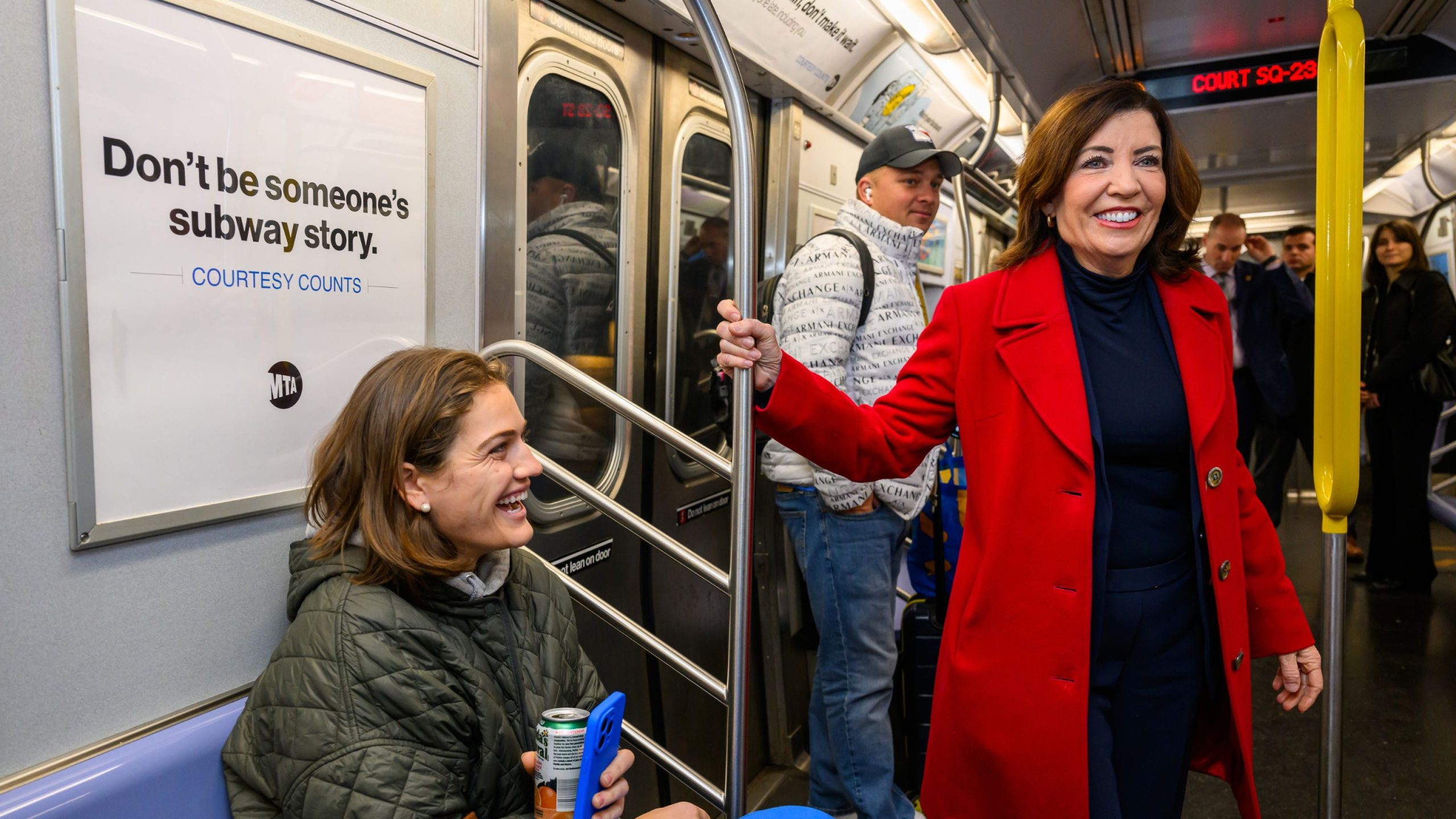Governor Kathy Hochul, who has been criticized for not doing enough to prevent violent crime in the city, has hailed the installation of surveillance cameras across New York City’s subway system as a vital measure for enhancing safety and improving crime resolution. Describing the move as a pivotal response to rising violence on public transit, Hochul emphasized the cameras’ role in bolstering law enforcement efforts.
“The recent surge in violent crimes in our public transit system cannot continue — and we need to tackle this crisis head-on,” Hochul declared. “I directed the MTA to install security cameras in every single subway car, and now that the project is complete, these cameras are helping police solve crimes even faster.”
Notice how Hochul is calling for more surveillance to “solve” the crimes that are already happening, rather than looking for ways to reduce the crime in the first place. As is the case, in other areas, rising crime rates are being used as a reason to introduce more surveillance rather than look at the root causes.
This surveillance upgrade aligns with broader safety measures, including Hochul’s decision to deploy an additional 250 National Guard members to subway patrols in December, bringing the total to 1,000. Citing public safety as her “top priority,” the governor’s actions come amidst growing concerns over violent incidents that have drawn national attention.
Recent violent acts have intensified public scrutiny. Notable cases include the trial of former Marine Daniel Penny, who confronted a homeless man, Jordan Neely, in a deadly altercation, and the shocking murder of a woman who was set on fire by an illegal immigrant.
The reliance on surveillance as a primary response to rising crime rates reflects a broader societal and political trend that prioritizes reactive measures over preventative ones. While tools like cameras can aid law enforcement in identifying and apprehending offenders after a crime has occurred, they do little to address the root causes of violence.
Governments are increasingly citing public safety as a justification for implementing invasive surveillance measures, especially during periods of heightened public concern over crime or terrorism. The underlying narrative suggests that more cameras, data collection, and monitoring will deter criminal activity or lead to quicker resolutions of incidents.
Orleans Parish District Attorney Jason Williams recently reignited privacy concerns following a devastating New Year’s Eve attack in New Orleans, where Shamsud Din Jabbar drove a truck into a Bourbon Street crowd, killing 15 and injuring 35. Calling for expanded surveillance as a security measure, Williams praised European models like the UK’s CCTV network, describing them as effective in preventing threats.
In an MSNBC interview, he suggested Americans should prepare for changes in privacy norms at large events, stating, “Things are going to have to change.” However, critics warn that such systems risk infringing on civil liberties without guaranteeing safety, sparking debate over the balance between security and freedom.













